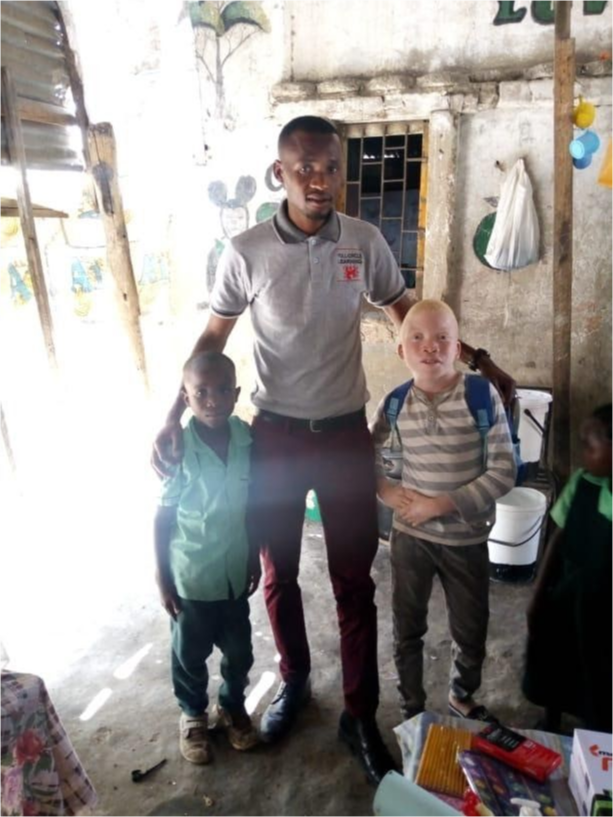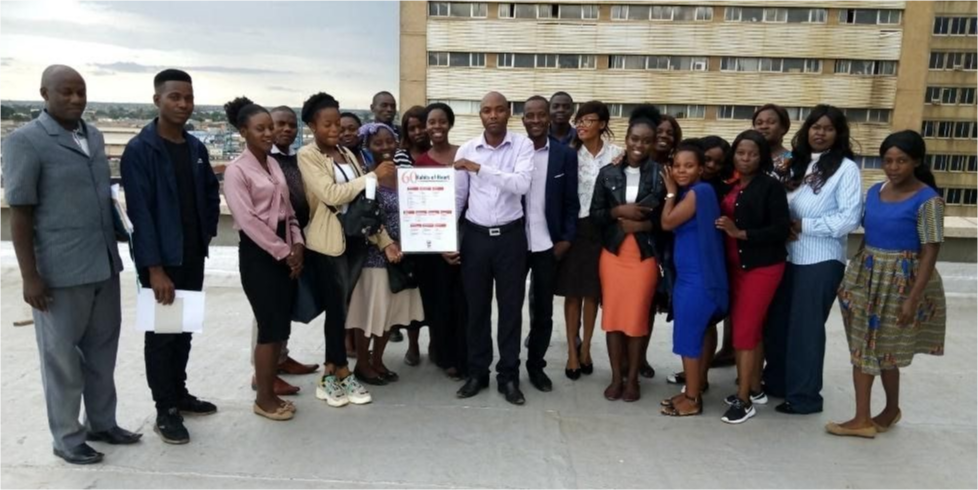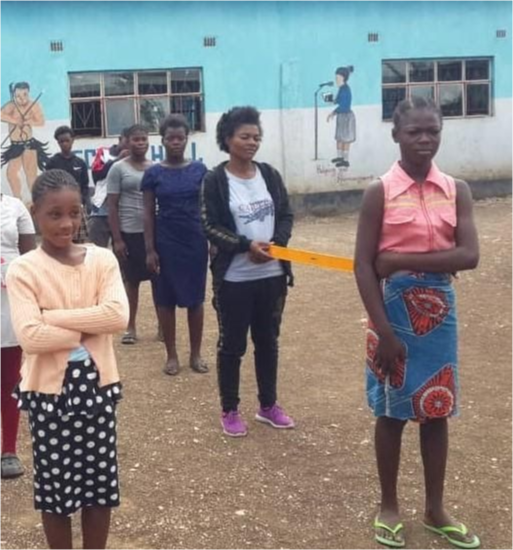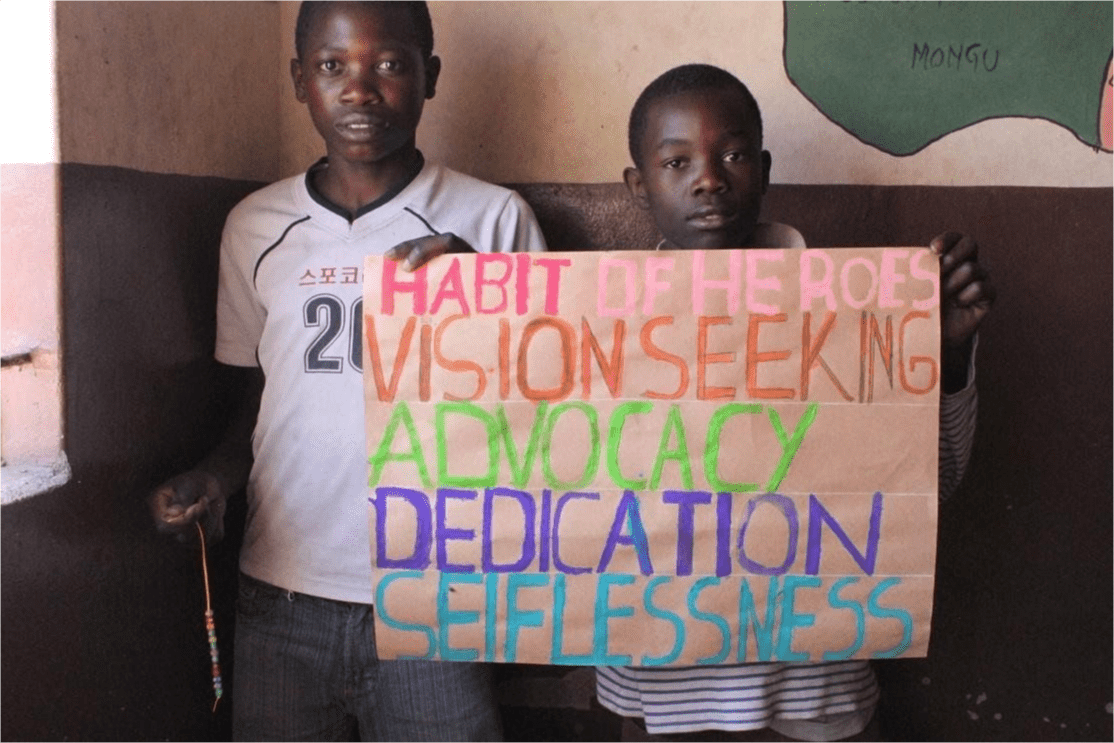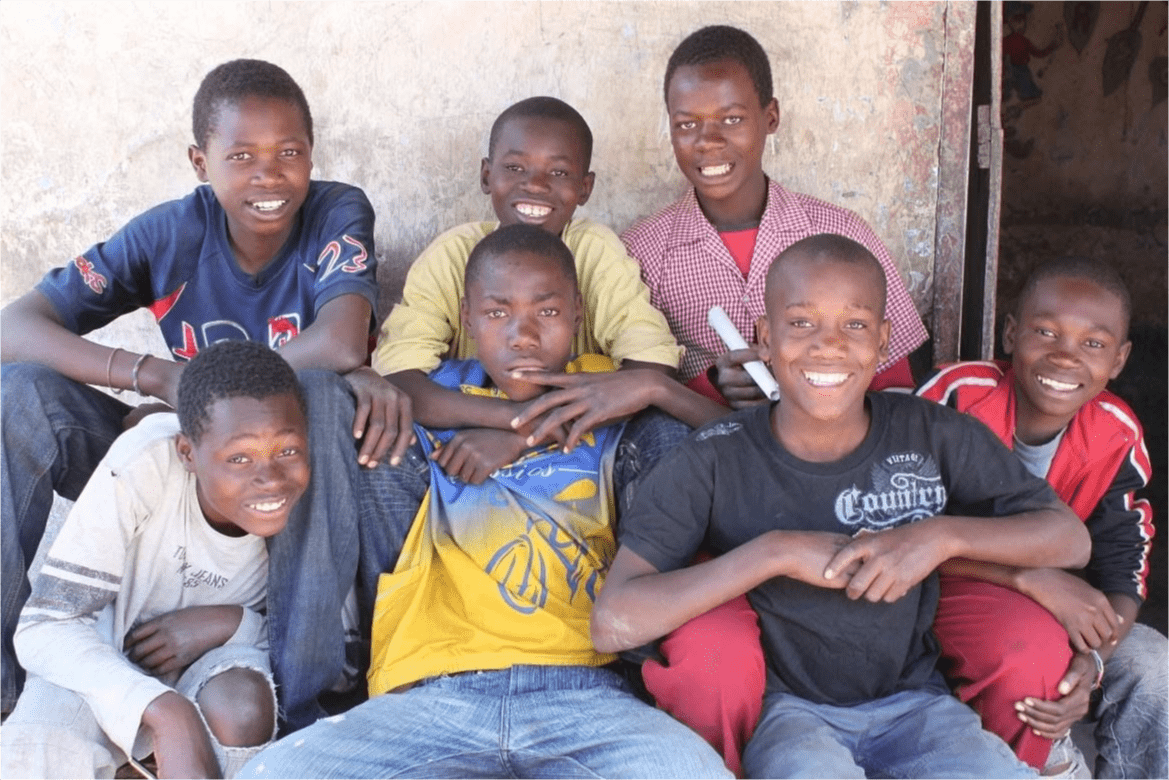Zambia
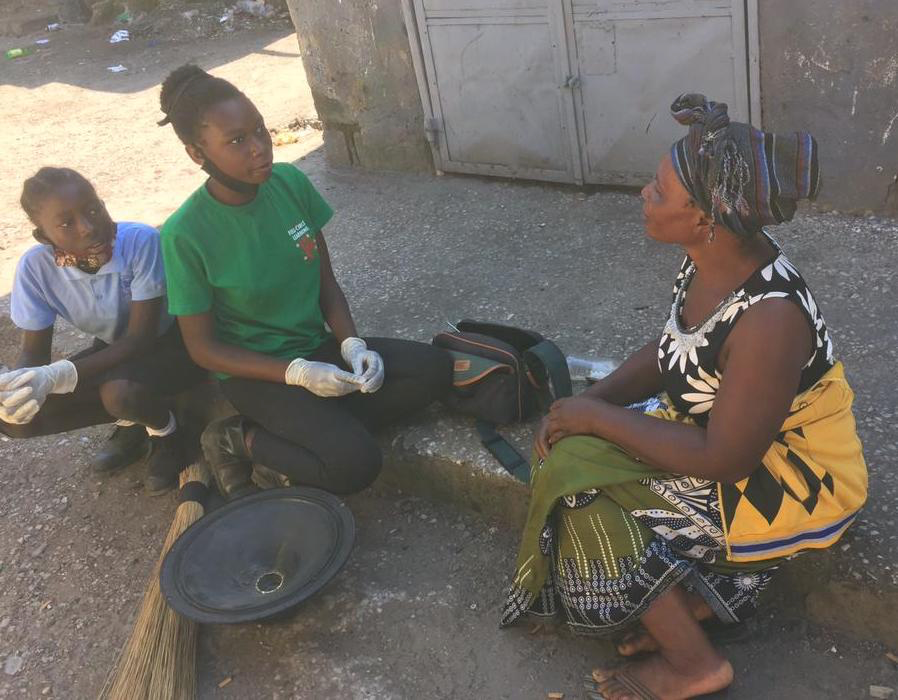
Nothing heals quite like empathy, the universal remedy.
One student-led “wisdom exchange” began in the secondary grades of the Harvard International school, in the Delta region of Nigeria, where students ultimately shared health education concepts with 20,000 households in 2021. They followed a systematic process to do so. Their learning unit theme, Awareness, included discussions about the factors that promote equity and that keep societies healthy. Students met with the region’s medical director, who identified the area’s most relevant health risks and treatment disparities, focusing especially on Lassa fever among vulnerable populations.
Because of the disease’s relative obscurity, the students, in their first academic unit, set a goal of heightening awareness of Lassa fever among nearby residents. They began walking door to door to help households understand their own health risks and guide them in safely clearing up rodent infestations. After their early successes, the school’s Health Disparities Team traveled to another town and then to another. Next, they presented information at multiple schools, to deputize and educate peers as public health advocates. Ultimately, they reached households in five towns with their message, tracking statistics as they measured the impact based on the average number of individuals in a household.
Officials urged the school to expand its efforts, confident in the students’ emerging expertise and strong commitment to the common good. The school no longer needed to solicit health agencies for information, as government departments began to reach out to them as a resource, tasking them with public education about the next set of health priorities--malaria, diabetes, and high blood pressure—according to project leader Harry Kennedy.
Another development convinced officials to reach out to the school, Kennedy reported. A conspiracy theory had led some citizens to discredit government health advisories, believing the intention was to increase the mortality rate and reduce the size of the population. With government-sponsored public awareness programs decreasing in their effectiveness, officials felt compelled to cultivate new trust builders.
The confidence placed in them helped cement students’ sense of purpose as they reached across cultural and national boundaries. Seeing the results, the Education Ministry requested teacher training programs for educators at other schools. Kennedy remarked that the movement had begun to “revive our national system. This program is making a great difference in the lives of the children.”
Meanwhile, wisdom exchange partners in two Zambian community schools, St. Thomas and Lushomo, began to mitigate the spread of typhoid. (A community school is defined as a typically free school for low-income learners, operated by parents, as opposed to tuition-based public or private schools.) In many of the schools, teachers strive to teach the national curriculum with little or no pay, while implementing an additional mission of fostering humanitarian goals. The Zambian learners compared their own disease prevention process with that of the Nigerian students at Harvard International. They visited health professionals to learn the causes and effects of typhoid. They created educational materials to carry out neighborhood awareness campaigns and environmental cleanups. They wrote letters back and forth with the Nigerian partners about best practices to build public trust. They conducted conflict resolution exercises to address tribal resistance to adding chlorine to drinking water. Through their correspondence with the Nigerian students, they also learned about the causes of the vector-borne disease Lassa fever, previously undocumented in Zambia.
The Zambian students later contacted their environmental health technician about their findings with the Nigerian students concerning Lassa fever and initiated a pledge to add it as a research topic, to determine the possible existence of Lassa fever outbreaks in their country. Zambian Full-Circle Learning trainer Eric Muleya expressed amazement at this unanticipated wisdom exchange outcome. Originally the educators had anticipated an exploration of community-trust building and the process of reducing health disparities. When a community school directed its nation to explore a previously untreated disease, he remarked, “Essentially, these young students are realizing their capacity to influence global health!”
The schools within each setting grew into their roles as ideal trust builders, enhancing the work of health agencies, clinics, and civil society organizations even beyond their own borders.
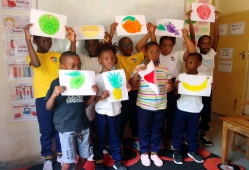
A Cornucopia of Capacities
Every child has a gift. At Zambia’s Multisensory School, they discover why their gifts matter.
Teachers introduced the habit “Appreciation of Diversity” by challenging students to teach a younger class about a variety of fruits. The lessons not only included nutritional details but appreciation of the varied capacities that enrich a healthy society. Alter-abled students, including autistic children and children with Down’s syndrome, stood among neurotypical learners to educate their peers, demonstrating that diverse gifts make for a stronger classroom—and a better world.
The children extended their voices in celebration of diversity by writing letters to parents, to government officials, and to students at neighboring schools.
In the US, we struggle to make unheard voices equally heard. Imagine—no fewer than 72 ethnic tribes call Zambia home and vie for political influence. Full-Circle Learners show that maintaining harmony around the world begins with a generation who teach one another how to listen to every voice at the table.
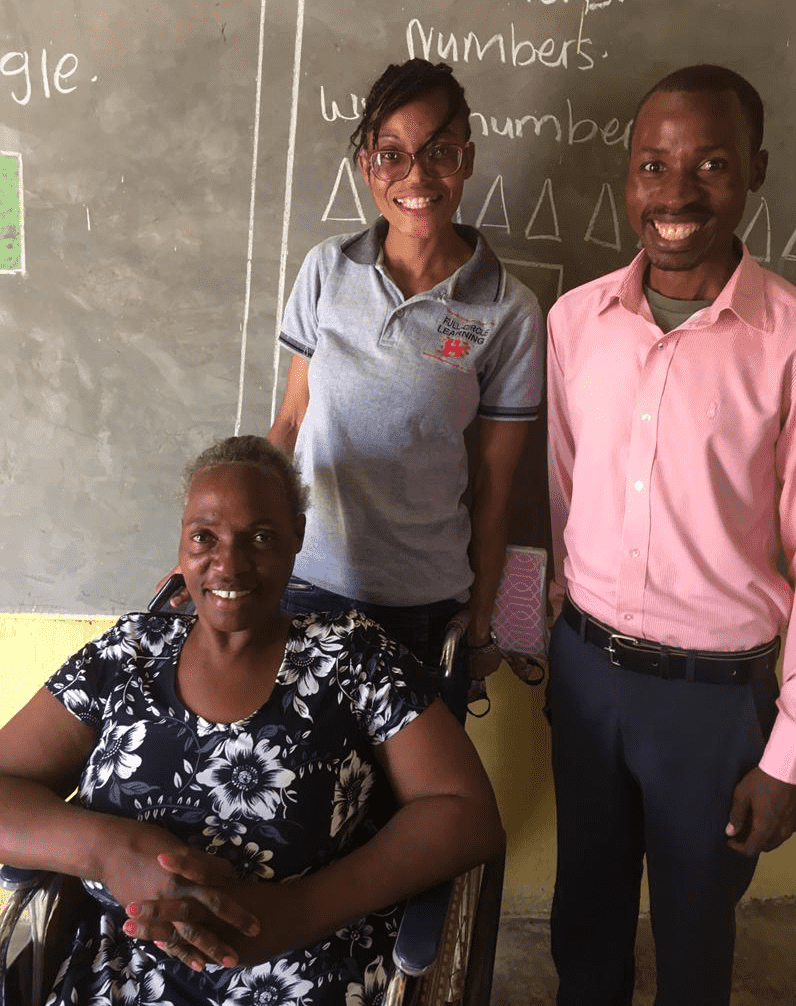
Lighting the Path from Village to City to Country
Good news travels on foot, by bus and now via Zoom. Zambian educators can testify to that fact, thanks to new initiatives in the country that are bringing Full-Circle Learning to more bright young minds.
This month, in the rural Mumbwa District of Zambia, local educators requested online capacity building workshops to help 12 new schools revitalize their communities. In the same month, 14 schools in the capital city of Lusaka came together remotely, joining the movement with teacher training programs of their own.
Two weeks later, Zambia’s school principals met online with visionary leaders from ten countries. They set out to help tackle humanity’s challenges through Full-Circle Learning’s transformational education processes and projects with habits-of-heart at their core.
St. Thomas School principal, Raphael Chilwana, said: “We just want to thank you…for coming up with a program for school principals to help learners express love and unity in schools.”
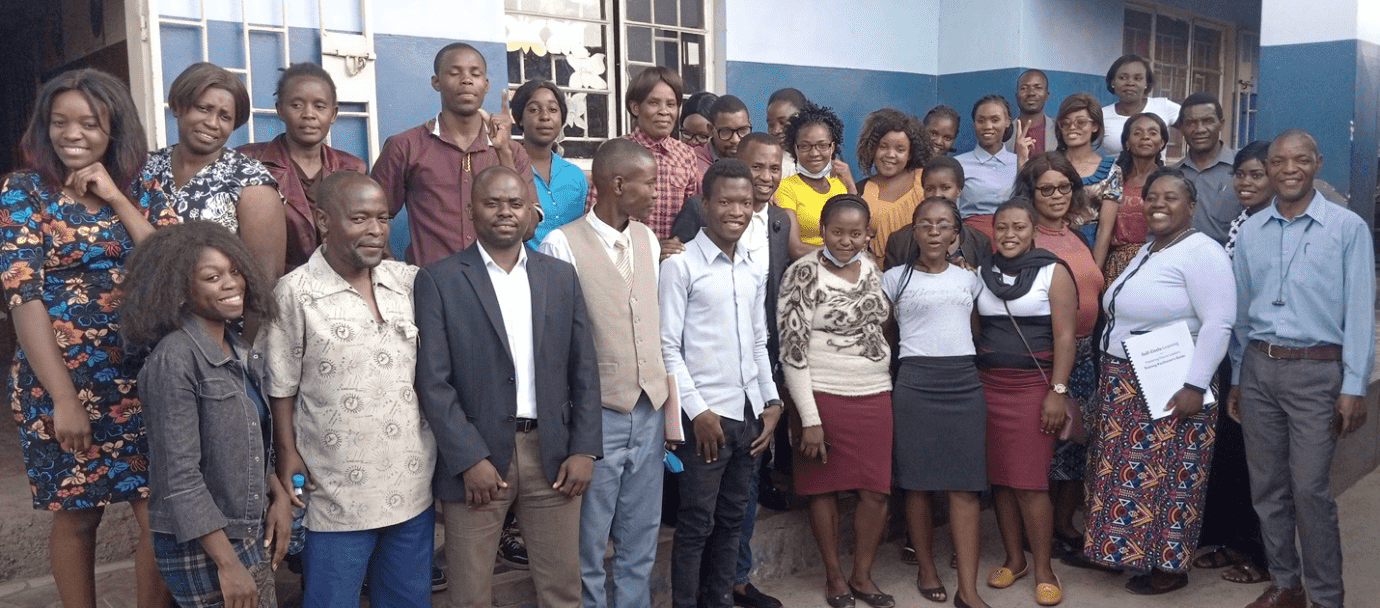
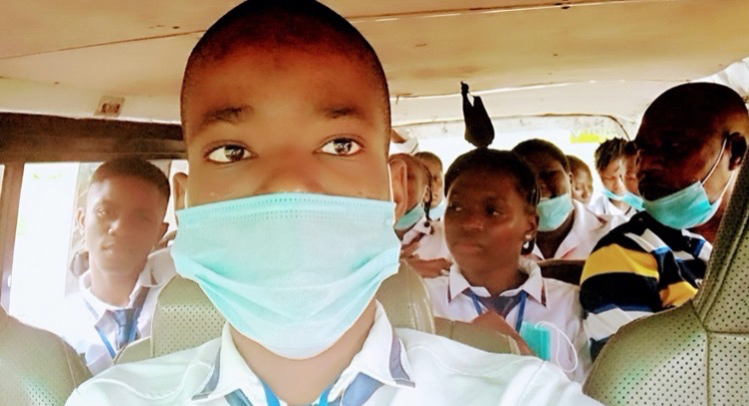
Students Halt a Killer in the Air
Young leaders across Africa are fighting malaria—and winning.
Exchanging Wisdom to End Disease
Across Africa each year, 215 million people suffer from malaria, according to the World Health Organization. In some regions, the death toll surpasses that of Covid-19. When malaria strikes a community, 67% of the dead are children—but Africa’s children also lead the campaign to make malaria a problem of the past.
Full-Circle Learning students realized that tackling any public health crisis begins with the habit-of-heart of awareness. Schools in Liberia, Nigeria, and Zambia currently work together to spread the awareness that can protect communities from malaria.
In Nigeria, Harvard International students traveled across the region to galvanize peers as health advocates in their effort to save lives. A team of student researchers learned from their visit to a local hospital and taught their new knowledge to their classmates for a half an hour daily. Via cell phone, they met with learning partners abroad. Inspired by this international exchange of wisdom, they next traveled to another town, Umutu, where they visited six schools and trained 2,700 children and 170 parents to act as health advocates. In the photo above, the students are on the road to make this change.
Meanwhile, the rainy season brought flooding to Liberia. Standing water bred new mosquitoes to carry the malaria parasite. At Ma Vonyee G. Dahn Memorial School, students toured a malaria research lab and a public health department to get the facts. They shared specially treated mosquito nets and information about treatment with families in 14 homes. Elderly and high-risk community members who lived near the school happily received the gifts. Other community members welcomed a public presentation (see photo below) which detailed the steps for mosquito eradication.
Zambia’s Gifteria School also undertook a malaria prevention project. Students, parents, and teachers worked together to clean up the local environment and drain standing pools where mosquitoes could breed. Two local orphanages were especially vulnerable, due to their location near a stream. The Gifteria students visited these orphanages and the surrounding community, mosquito-proofing the landscape and giving treated nets to those in greatest need.
By enhancing their projects through “wisdom exchanges,” each group of global learners accomplished more than they could have on their own. At present, the students continue their public health advocacy to improve the wellbeing of their human family.
Help FCL’s students slap out malaria.
Please click below to donate today.
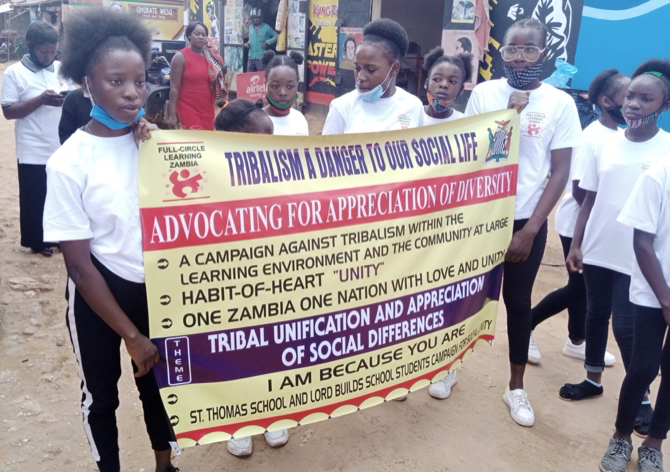
How to Unify A Divided Nation
Students spark global change as they dance their way to world peace
Two Countries Exchange Wisdom for Togetherness
World peace begins with the leaders of the future. This spring, a determined group of students in Zambia and the Gambia worked together across borders to bring peaceful change to their countries.
In both countries, political leaders have been using tribalist language to pit ethnic groups against each other. In Zambia, this rhetoric amplifies the tensions between the nation's 72 tribes, and similar divisions are growing among the 8 tribes that call the Gambia home.
Students at FCL schools in the two countries independently recognized the growing problem, setting a course towards peace by organizing marches, conflict resolution demonstrations, and celebrations of cultural diversity.
When the two groups of students realized their goals were the same, their schools began to study the habit-of-heart “Appreciation of Diversity.” They connected internationally, sharing global ideas to create local change.
In both nations, students walked in the streets and gave bold speeches, advocating for unity. In the Gambia, an open mic allowed passersby to give their own speeches in the marketplace, which meant the whole community could contribute to the spirit of togetherness illuminating the gathering of hundreds. In Zambia, some said they would take the messages back to their villages.
The schools in both countries held cultural festivals to celebrate the diverse heritage of the many tribal groups living side by side. While enjoying the poetry, drama, songs, and traditional dances, students and guests expressed gratitude that they finally felt they had a place where they all belonged. In Zambia, the 50 students’ performances reached a wide TV and radio audience, in addition to bringing joy to the guests physically in attendance.
One Zambian grandmother, Mrs. Museteka, said in praise of the students’ work:
“We are one people. One nation. One human family.”
Help FCL’s students bring peace to our human family.
Please click below to donate today.
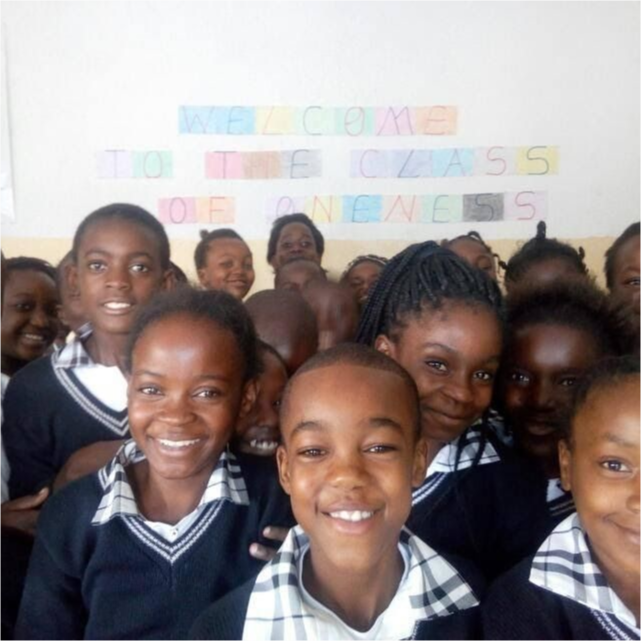
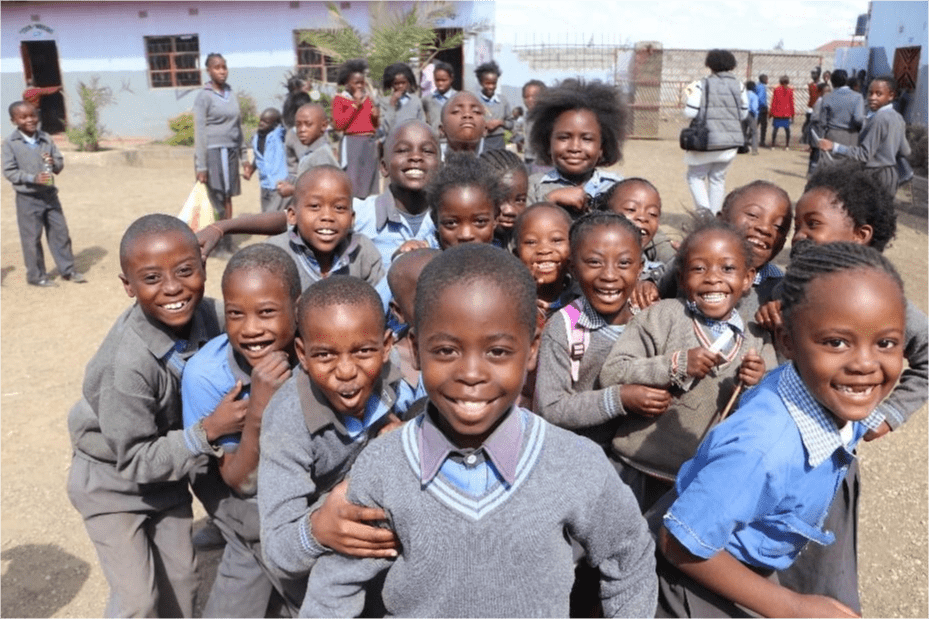
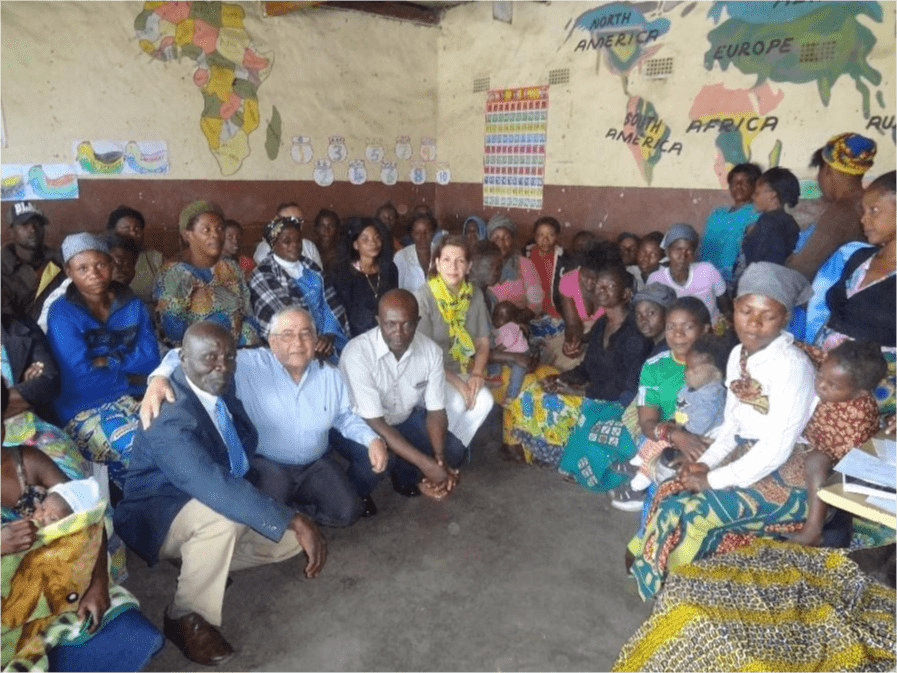
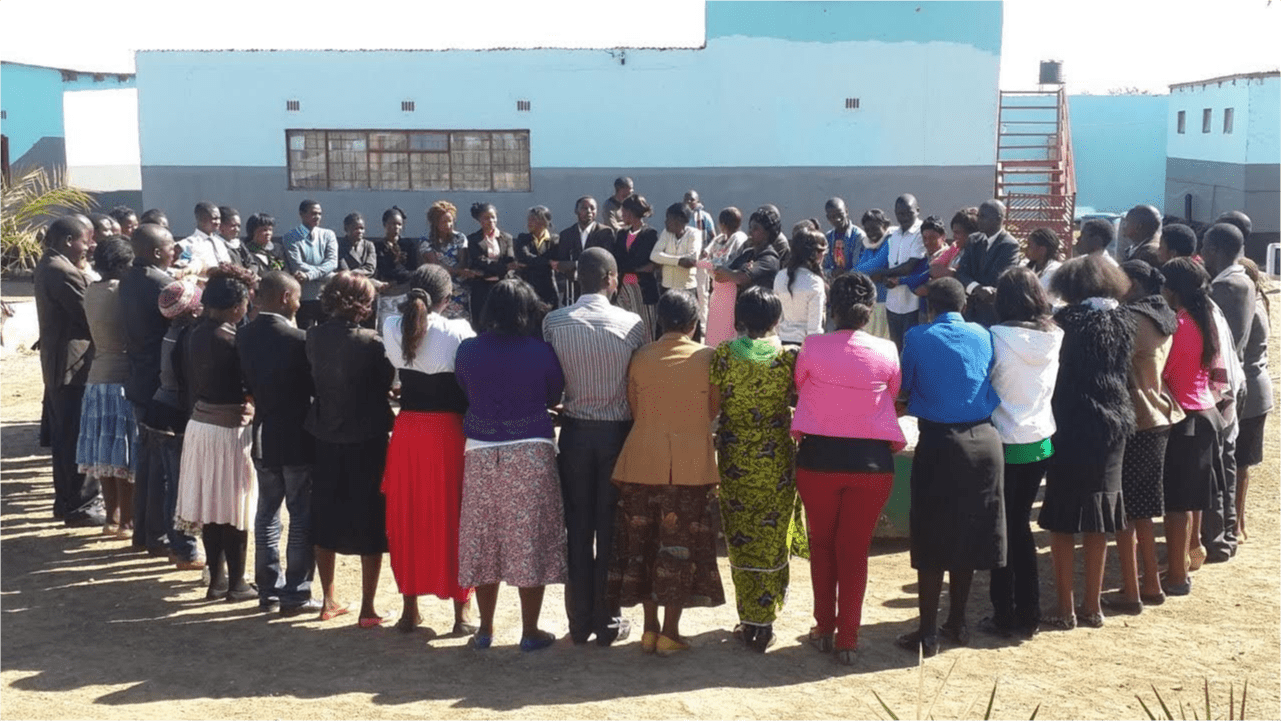
While building a medical clinic in Zambia around 2006-7, Dr.Farzin Rahmani had a life-changing ride in a cab. He expressed concern about the village schools, few and far between, which lacked basic infrastructure and trained teachers. He wished he knew a way to help. The cab driver turned around and took him to his sister’s school, Blessed Vale, where Beauty Nzila had begun teaching her children and had attracted the attention of neighbors seeking classes for their own children. She set up an outdoor school under a tree and eventually engaged volunteer teachers to help. When Dr. Rahmani saw the operation, he knew he had to have his contractors help construct a real school. Three buildings later, EDI arranged for a Full-Circle Learning teacher-capacity-building workshop, taught by Maureen Mungai.
By 2020, more than a dozen schools in Zambia had been trained, and many had conducted effective community-building projects.Some of the Blessed Vale students had earned scholarships to medical school and later returned to educate other learners. Here are a few of many highlights from the schools of Zambia.
- Early in Zambia’s history, primary students in a rural community applied their skills to persuade a rural mayor to electrify his community for the benefit of the health clinic and the schools. He changed his policies based on their presentations. Just in case he could not follow through, the students began a study of alternative energies.
- The Gifteria School made compassionate service a year-round weekly tradition.Compassion Day at Gifteria School evolved after a learning unit on the habit-of-heart Compassion, after which the children implored school leaders to set aside a portion of every Wednesday afternoon ensuring that nearby elders had food and water and teaching the preschool children.
- Mildred Academy’s fourth graders set out to reduce traffic deaths. They integrated the habit of Unity into a math and music project. They taught addition and subtraction with rocks, then sang to neighbors while demonstrating how to put the rocks into the potholes that had increased due to frequent flooding. Their efforts reduced the incidence of traffic injuries and deaths, while bringing joy to the community.
- Two years later, ten schools engaged in a project to teach autism awareness and appreciation of differences. Their songs and role-plays made a deep impact on their villages.
In the pictures: Dr. Farzin Rahmani visited the staff of Blessed ValeSchool. He also introduced the project to Kenneth Kaunda, Zambia’s first president. 70 teachers formed a virtual “nest” to represent their role in the students’ lives. FCL facilitator Eric Muleya helped students reduce stigma and honor the skills and needs of diverse learners. Teachers from six schools participated in a Full-Circle Learning workshop in 2020. Students used math to learn social distancing. Two teachers learned the process of conflict resolution. Blessed Vale Students conducted an Advocacy project to encourage education in 2012. Their efforts to inspire street children to attend school doubled the population of their school.
